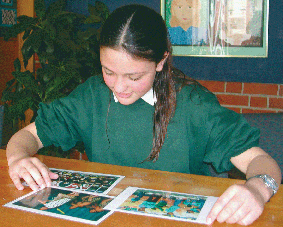 |
 |
|
|
The
current national curriculum statement gives the aim of social studies
education as enabling students to participate in a changing society
as informed, confident and responsible citizens. To help achieve this
outcome, students are expected to acquire knowledge that will inform
and contribute towards their understandings about responsibilities,
relationships, culture, heritage and management of the environment and
resources. They are also expected to develop the skills needed to live
and contribute as effective and worthy members of society.
The richness and diversity of the conceptual nature of much of the content
of social studies presents special challenges for the design and administration
of assessment tasks. National monitoring has identified understandings
and skills intended to represent a balanced perspective of social studies.
Some aspects of social studies are quite measurable (knowledge, for
example) whereas others require observations about matters for which
there is no universal right or wrong.
This chapter reports the results of twenty-five social studies tasks
administered to individual Mäori students in both general education
settings and Mäori immersion settings. Thirteen tasks were administered
in a videotaped one-to-one interview format, while the other twelve
tasks were attempted in a station or independent format (students worked
independently on the tasks, with teacher support available if required
for reading and writing).
National monitoring results are reported task by task so that results
can be understood in relation to what the students were asked to do.
To allow comparisons of performance between the 2001 and 2005 assessments,
however, eight of the twenty-five tasks have been designated link tasks.
Student performance data on these tasks are presented in this report,
but the tasks are described only in general terms because they will
be used again in 2005.
Two of the tasks were judged not to be suitable for comparisons of the
performance of Mäori students in general education and students
in Mäori immersion settings. The reasons for these exclusions are
presented in the commentaries accompanying the tasks.
Among the remaining twenty-three tasks, Mäori students in general
education and students in Mäori immersion settings performed equally
well on twelve of the tasks. Students in Mäori immersion settings
scored statistically significantly higher than Mäori students in
general education on six tasks. Mäori students in general education
scored statistically significantly higher than students in Mäori
immersion settings on five tasks. These comparisons must be interpreted
with considerable caution, for the reasons discussed in Chapter
2.
|
